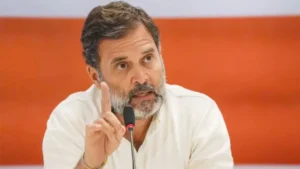On December 26th, India lost one of its most respected leaders, former Prime Minister Dr. Manmohan Singh, who passed away at AIIMS Delhi in the evening. His sudden demise has left the nation in mourning. As we remember his contributions, let us reflect on some of the pivotal decisions he made during his tenure as Prime Minister of India, which left an indelible mark on the country’s growth and development.
Dr. Singh’s leadership not only shaped India’s economic landscape but also influenced global perceptions of the country. From groundbreaking reforms to championing social welfare, his decisions continue to resonate in India’s journey towards becoming a global powerhouse.
Dr. Manmohan Singh made several pivotal decisions during his tenure as Finance Minister and Prime Minister of India. However, one of the most significant and widely regarded as his best decision was the economic liberalization in 1991.
1991 Economic Reforms:
As Finance Minister under Prime Minister Narasimha Rao, Dr. Singh took bold and decisive steps to rescue India from a severe economic crisis. The country was facing a balance of payments crisis, with foreign exchange reserves running low and inflation spiraling. India was on the verge of defaulting on its international debt obligations.
Dr. Singh’s decision to liberalize the Indian economy was transformative. He devalued the rupee, reduced import tariffs, removed restrictions on foreign investments, and dismantled the License Raj (a system of stringent regulations and controls on businesses). This marked the beginning of India’s economic liberalization, opening up the country to global markets and encouraging both domestic and foreign investments.
The reforms led to rapid economic growth, with India emerging as one of the world’s fastest-growing economies. They also laid the groundwork for India’s success in the global economy over the next few decades. This decision not only saved the country from economic disaster but also set India on a path toward becoming a major player on the world stage.
As Prime Minister:
As Prime Minister (2004-2014), Dr. Singh made several key decisions to continue India’s growth. For example, he presided over the nuclear deal with the United States in 2008, which brought India into the global nuclear mainstream and boosted the country’s energy security and geopolitical standing. Additionally, his focus on social welfare schemes like MNREGA and the Right to Education Act helped uplift millions from poverty and improved the country’s social infrastructure.
However, the 1991 economic reforms remain the defining moment of his career and are widely considered the best decision for India in terms of shaping the country’s modern economic trajectory.
Also Read: PM Modi Condoles Sudden Demise Of Dr Manmohan Singh, Passes Away At The Age Of 92






















